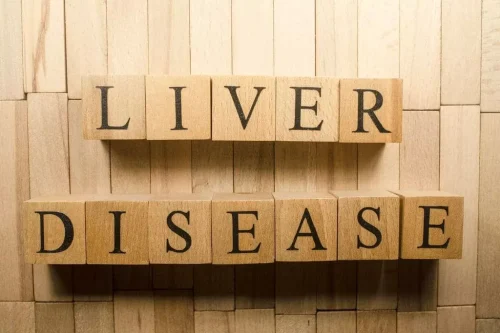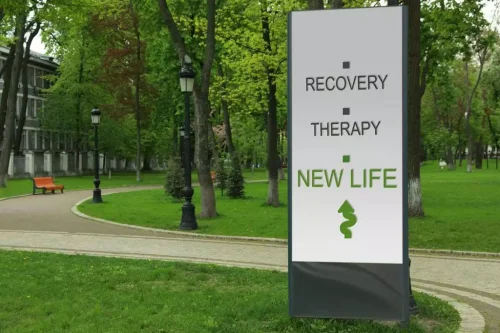

Reducing the risk of relapse in addiction recovery is intricately tied to building a supportive environment that fosters well-being and sustains positive behavioral changes. A robust support system plays a pivotal https://ecosoberhouse.com/ role in an individual’s journey towards recovery. This support can come from family, friends, support groups, or a combination of these, offering encouragement, understanding, and a sense of belonging.
Acute and Post-Acute Alcohol Withdrawal Symptoms
- They can be external (like passing by a bar) or internal (like feeling stressed or lonely).
- Screening and assessment tools do not allow physicians to predict with confidence who will or will not experience life-threatening symptoms.
- Although you may relapse and start drinking again, these programs can help you transition to sobriety much better.
- Mindfulness training, a common component of cognitive behavioral therapy, can help people ride out their cravings without acting on them.
Chronic heavy drinking can lead to lasting changes in the brain that increase a person’s risk of developing a physical and psychological dependency on alcohol. Alcohol addiction can make it extremely hard for a person to stop drinking because of the painful and dangerous withdrawal symptoms they experience. Silver Pines and Steps to Recovery have provided addiction recovery programs in Pennsylvania for over a decade with detox, residential, outpatient, and sober living services. Last year, we expanded our services to include robust mental health treatment, a new outpatient location, and specialized programming for our nation’s veterans, with more to come this year! We are visually recognizing our growth with a unified look that better reflects who we are today and the passion we have for helping everyone with their addiction and mental health recovery journeys. It can be tempting to try and quit alcohol at home without professional help.
How to overcome alcohol cravings?
That is because the brain is plastic and changes in response to experience—the capacity that underlies all learning. In one set of studies looking at some measures of dopamine system function, activity returned to normal levels after 14 months of abstinence. Over time, reward circuits regain sensitivity to respond to normal pleasures and to motivate pursuit of everyday activities. Areas of executive function regain capacity for impulse control, self-regulation, and decision-making. Sustaining behavior change until new patterns become ingrained is difficult under the best of circumstances. In leaving addiction behind, most people have to restructure their everyday life, from what they think about and who they spend time with and where, to how they use their time, to developing and pursuing new goals.


How Much Do I Have to Drink to Experience Withdrawal?
- These stages can help prevent relapse and support people to live healthier, fuller lives.
- It’s the fuel that can propel someone from thinking about change to actually preparing for it.
- Recovering from alcohol addiction is a challenging and rewarding journey.
- Alcohol misuse and addiction can have harrowing and hazardous side effects at every phase.
- Most of your efforts are aimed at managing the urge to drink, but it’s about more than just saying no.
People who are daily or heavy drinkers may need medical support to quit. Stopping drinking abruptly can lead to seizures and can even be fatal. Unstable vital signs increase the risk of complications and can be managed with medications. People who experience severe withdrawal symptoms or DTs may require hospitalization or intensive care unit (ICU) treatment during alcohol.
• Meaning and purpose—finding and developing a new sense of purpose, which can come from many sources. It may include rediscovering a work or social role, finding new recreational interests, or developing a new sense of spiritual connection. The important feature is that the interest avert boredom and provide rewards that outweigh the desire to return to substance use.


Preparation: Getting Ready for Change
For example, they may say they are drinking a lot because they are stressed because of work. Or they could claim that it’s common to drink to relax and say that it’s no big deal. Our facilities across the U.S. offer a full continuum of care, custom treatment plans, and comprehensive discharge plans to aid in the success of your recovery. One of the most critical aspects of maintenance is identifying and managing triggers. Triggers are anything that sparks a craving or desire to return to addictive behaviors. They can be external (like passing by a bar) or internal (like feeling stressed or lonely).


Recovery isn’t a straight line – it’s more like a winding path with ups and downs. It’s like standing on the edge of a diving board, knowing you need to jump but feeling paralyzed by the prospect. These rationalizations serve as a protective shield, keeping stages of alcoholic recovery the reality of addiction at bay. It’s a tricky stage because the individual isn’t actively seeking help or information about their behavior. They might become defensive if confronted about their addiction, viewing such concerns as unwarranted criticism.


The 12 steps are challenging for every anyone struggling with a substance use problem, no matter what their addiction. Going through the ways your addiction has taken away from your life and how it has impacted others may be painful. While working with a sponsor is expected during the steps, the best chance of recovery comes from a combination of efforts. Bear in mind that recovery is a lifelong process (but it does get easier!). Helping a person recovering from an addiction can come down to helping them connect to treatment—if they’re not already doing so—and encouraging support groups like AA. The people this person meets in these meetings are much better positioned to encourage their sobriety than family members are.
Alcohol Withdrawal Symptoms, Detox, Timeline, and Treatment
Believing in this higher power may help someone find meaning in their life outside of addiction. For instance, they may find a greater sense of community by joining a spiritual or religious group. These can be healthy coping mechanisms someone turns to as they progress through recovery. Though the original Twelve Steps of AA have been adapted over time, the premise of each step remains the same for all recovery programs that use a 12-step model. Signs of a drinking problem can include financial issues, legal problems, struggling in relationships and using alcohol to deal with stress.
- In conclusion, embracing harm reduction and diverse modalities recognizes the uniqueness of each individual’s journey in addiction recovery.
- It is a multi-stage process that involves various steps, each crucial to the overall success of recovery.
- Recovery from an alcohol use disorder requires effort, time, willpower, and support.
- Many treatment programs have partnerships with area businesses to hire those in recovery.
- In one set of studies looking at some measures of dopamine system function, activity returned to normal levels after 14 months of abstinence.
- However, when you stop drinking, your liver will begin to repair itself and the damage will start to reverse.
